You're reviewing quarterly numbers with your CFO, and that familiar pattern emerges again: revenue up 18%, operational expenses up 23%. Your CFO points to the administrative overhead line that keeps climbing.
"We need to get this under control. What's driving these costs?"
You know the answer.
Your NetSuite system is creating more work than it's eliminating. Manual processes are eating productivity. Reports take forever. Your team fights the system instead of using it to drive results.
The solution is NetSuite optimization, but you need your CFO to see it as a strategic investment, not another IT expense.
Here's what we've learned from hundreds of CEO-CFO collaborations: successful approvals aren't about convincing reluctant finance leaders to spend money.
They're about building bulletproof business cases using six specific words that shift conversations from cost to value.
Why CFOs Question NetSuite Optimization Investments
Your CFO isn't being difficult when they push back on optimization proposals. They're protecting cash flow and ensuring every investment delivers measurable returns.
From their perspective, technology requests often look identical: high upfront costs with vague efficiency promises.
What CFOs typically see:
- Significant capital outlay with uncertain payback periods
- Implementation risk that could disrupt operations
- Ongoing maintenance costs that compound over time
- Scope creep turning $50k projects into $200k nightmares
Your CFO has seen technology investments promise transformation but deliver complications.
NetSuite optimization is different, but you need to present it in terms they understand - cost reduction, revenue acceleration, and risk mitigation, not system features.
6 Magic Words That Build CFO Confidence
Six words consistently appear in approved NetSuite optimization business cases. These aren't technical specifications - they're financial concepts CFOs evaluate daily.
1. "Reduce"
This signals cost elimination, not cost addition. You're showing how NetSuite optimization turns ongoing operational expenses into one-time investments.
Here's a perfect example: A technology client's procurement team was burning 6 hours creating each purchase order. After implementing custom workflows and automation, they cut this to 12 minutes.
The math is simple - at 500 monthly POs, that's 2,475 hours saved monthly, equivalent to 1.5 full-time salaries without the benefits and overhead costs.
Financial areas CFOs want reduced:
- Administrative overhead and manual labor costs
- Error correction and rework expenses
- Processing delays that slow revenue recognition
- Overtime from inefficient workflows
2. "Eliminate"
While "reduce" shows improvement, "eliminate" shows complete cost removal. CFOs love eliminated expenses because they don't return.
The wholesale distribution company that came to us had a nightmare month-end process. Three employees spending three full days reconciling data manually.
We didn't just optimize it - we eliminated the need for reconciliation entirely through automated integration.
That's 108 person-days annually that simply vanished from their expense column. No management required, no gradual cost creep, just permanent savings.
3. "Automate"
Automation converts variable labor costs into predictable technology investments. CFOs understand automated processes scale efficiently - invest once, benefit continuously as volume increases.
We recently transformed a software company's customer data sync process. Previously, someone spent 8 hours every week manually updating information between NetSuite and their customer success platform.
Beyond the obvious $20,800 in annual labor savings, accuracy jumped from 78% to 99.7%.
But here's what really got their CFO excited: the solution scales infinitely. Whether they have 100 customers or 10,000, the cost remains the same.
4. "Accelerate"
Speed improvements translate to competitive advantages and revenue opportunities. When you accelerate customer-facing processes, you're capturing more revenue faster.
Consider the impact speed had on a trading company we worked with. Their complex pricing calculations took 45 minutes per quote - a serious competitive disadvantage in fast-moving markets.
Custom pricing engines reduced this to 3 minutes, but the real value wasn't time savings.
It was the deals they could now pursue that were previously impossible due to slow response times. Revenue opportunities that they couldn't access before suddenly became profitable.
5. "Prevent"
CFOs spend considerable time managing expensive problems after they occur. Presenting NetSuite optimization as preventing future costs resonates strongly.
Our healthcare client faced a compliance nightmare. Manual documentation processes created gaps that could trigger regulatory penalties in the hundreds of thousands.
Rather than wait for an audit to expose these vulnerabilities, we implemented automated audit trails and approval workflows.
The investment wasn't just about efficiency - it was insurance against potential regulatory catastrophe.
High-cost problems NetSuite optimization prevents:
- Regulatory violations and penalties
- Cash flow surprises from poor forecasting
- Customer churn from processing errors
- Inventory write-offs from inadequate planning
6. "Scale"
This addresses your CFO's biggest growth concern: can systems handle increased volume without proportional cost increases? NetSuite optimization enables profitable scaling.
A BPO company's approval process was breaking down as they grew. Individual-specific approvals meant bottlenecks whenever key people were unavailable.
We redesigned their workflows to be role-based instead.
The beauty? As they add team members, the system becomes more efficient, not more complex. Each new hire increases capacity without increasing process friction.
That's the kind of scaling advantage CFOs dream about.
Building Your Business Case Together
Successful approvals happen when CEOs and CFOs collaborate rather than CEOs convincing reluctant CFOs.
- Start with shared financial analysis: "Our order-to-cash process costs $67 per transaction. Industry benchmarks show $23 per transaction. At our volume, that's $528,000 in annual excess costs."
- Present optimization as a strategic necessity: "NetSuite optimization will automate workflows, eliminate bottlenecks, and reduce processing costs to competitive levels while preventing the $127,000 we lose annually to errors."
- Collaborate on ROI projections: "The $180,000 investment eliminates $528,000 in excess costs and prevents $127,000 in error expenses. That's 264% first-year ROI, with benefits that compound as we scale."
Addressing CFO Concerns Proactively
Even with a solid business case, anticipate and address common CFO concerns before they become roadblocks. Here's how to handle the most frequent pushback:
- "Can we afford the upfront investment?" "We're spending $44,000 monthly on inefficient processes. Optimization pays for itself in 4.1 months, then becomes pure savings."
- "What if we just add staff?" "Additional staff costs $78,000 annually per person, plus benefits. Optimization delivers the same capacity for a one-time investment."
- "How do we measure results?" "Monthly KPI tracking: processing cost per transaction, error rates, cycle times. Financial impact will be visible in our P&L."
Why Stockton10 Strengthens Your Business Case
CFOs prefer vendors who understand financial accountability and business risk management. Stockton10 helps CEOs build stronger cases by providing:
- Detailed financial projections with industry benchmarks and conservative ROI calculations
- Fixed-rate pricing that eliminates budget uncertainty and scope creep
- Industry expertise across wholesale distribution, manufacturing, and eCommerce that reduces risk
- 30-minute response guarantee protecting operational continuity
We understand CFO approval is just the first step. Success requires delivering promised financial results and maintaining systems that drive measurable value.
Transform the Conversation from Cost to Investment
Your next planning session with your CFO is an opportunity to position NetSuite optimization as essential business infrastructure. When you frame discussions around reduction, elimination, automation, acceleration, prevention, and scaling, you're speaking your CFO's language.
You're not asking your CFO to approve an expense. You're collaborating on an investment that impacts profitability, competitive positioning, and growth capacity.
Ready to build a bulletproof business case with your CFO?
We'll help you calculate exact ROI projections and create financial models that demonstrate clear value.
Our team has helped dozens of CEO-CFO partnerships secure optimization budgets by focusing on measurable results.
Stop accepting operational inefficiencies that drain profitability monthly. Let's build your business case together.
Calculate Your NetSuite Optimization ROI














